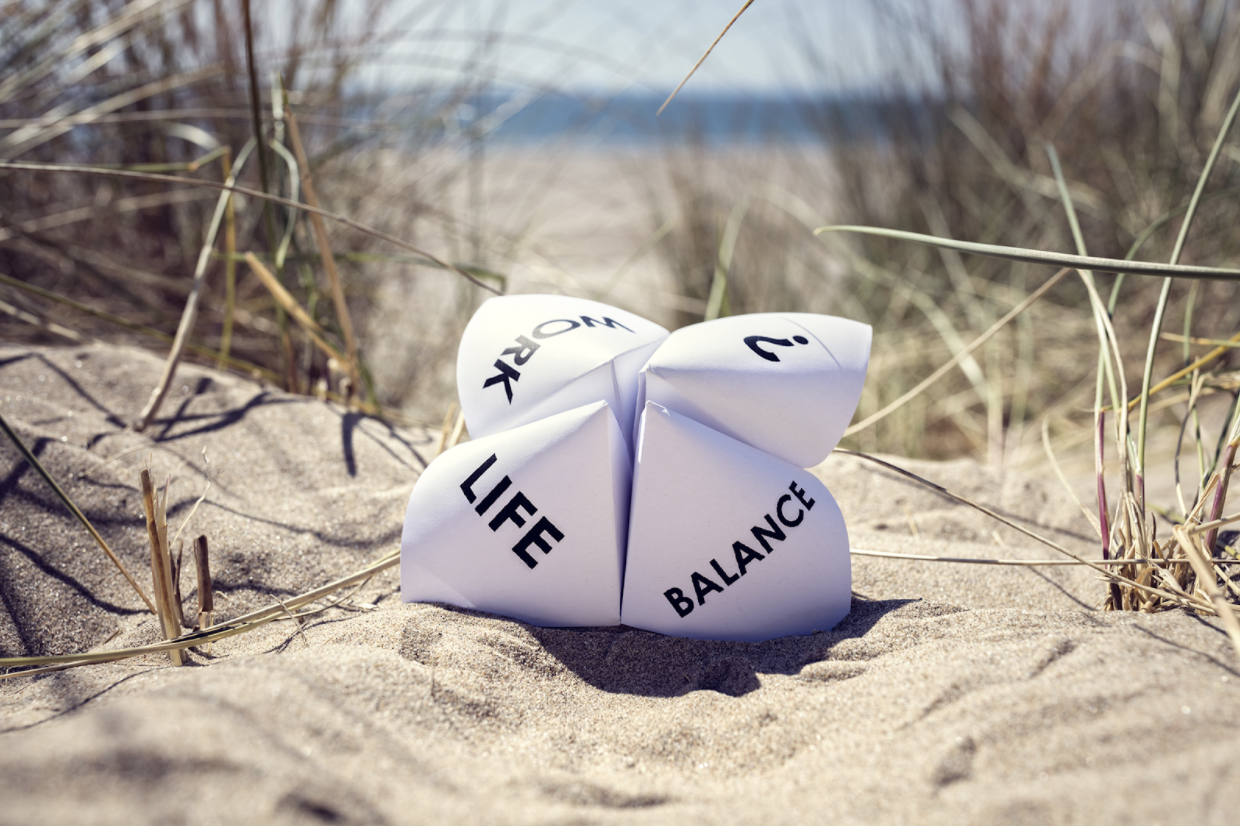Inspiration and the excitement of creation are addictive feelings. As a creator and entrepreneur, it’s easy to find yourself chasing them (and the desperate need to see your creations succeed in the real world) tirelessly.
Of course, this is why so many entrepreneurs succeed. It’s because we’re willing to go back a step and rework something until it works for our ideal audience or customer.
But that’s also why Lori Greiner, of Shark Tank, said
“Entrepreneurs are the only people who will work 80 hours a week to avoid working 40 hours a week for someone else.”
It’s that need and desire to see our creations succeed and take on a life of their own that can lead us to use our own life energy to fuel it.
The Work-Life Balance Myth
Ask any self-employed person about work-life balance, and they’ll likely laugh at you. “Work-life balance?” they’ll say. “What’s that?” The chances are, even if they do take a day or two off, they’re not really absent. They’re checking their emails, replying to DMs, and otherwise ensuring no client is having a crisis or that their employees are keeping things ticking over.
It has been argued that work-life balance is a myth for anyone working a full-time job, because the majority of your day and your thinking time (usually 40 hours a week, often more) are taken up by your job. If you’re lucky, you’ve got the kind of job you can leave at your desk, and when you leave at 5 pm on a Friday, you don’t have to think about it again until Monday morning.
That’s simply not how the birth of a business works. At least, it’s not without some serious boundary-building, and ideally, clients that also want to go home for the weekend and not think about work until Monday. If you have anything else, however, it’s almost impossible to escape.
This constant need and knowing that there could be a problem happening without your knowledge can be crippling, and is what leads so many entrepreneurs to be glued to their desks or smartphones. It’s what causes stress dreams and often leads entrepreneurs to do nothing but go to work, come home, and sleep.
This is a routine no one’s mental health can survive, and the only way to “fix” this has to come from within. When you’re the brainpower behind a startup, no one is going to tell you to take it easy or that they’ll take care of anything that happens for the next few days. That can only come from hiring well, and having established systems that allow you to relax.
The Highs and Lows of Entrepreneurship
So, why do we put ourselves through it? Because the highs are high. From the moment someone first buys your idea, you’re hooked. Knowing that you have made something from nothing and made it a living, breathing business is what leads entrepreneurs to sell one business and immediately start their next.
Knowing that you’re at the root of your success and you’ve changed other people’s lives with what you’ve created is something worth all those long hours.
So, is there a way to protect your mental health as an entrepreneur? Fortunately, yes. Of course, our mental health will always fluctuate in how good or bad we feel, but there are a number of things we can do to ensure we don’t feel unable to look away from our businesses, as if we’re awaiting disaster.


